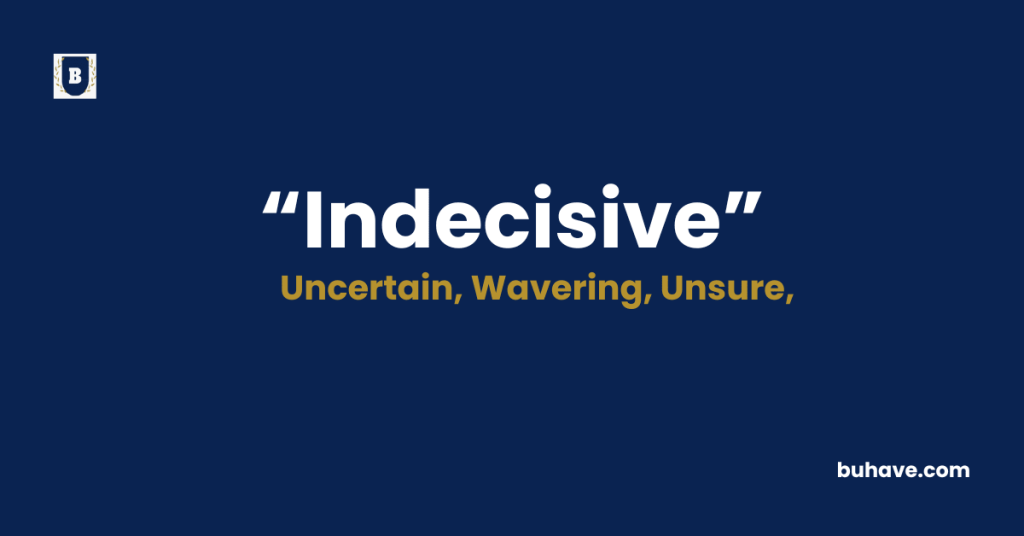The word ‘Indecisive’ (Adjective) describes someone who struggles to make decisions quickly or confidently, often hesitating or wavering between choices. In this guide, you’ll learn the full definition, synonyms, antonyms, etymology, and real-life examples of how to use ‘Indecisive’ correctly in sentences.
Indecisive Explained in Depth
A complete and detailed guide to the word Indecisive including meaning, definition, examples, etymology, synonyms, and antonyms.
Meanings of Indecisive
‘Indecisive’ refers to a tendency to be unsure, hesitant, or unable to make firm decisions. It can describe a person or a situation lacking clarity or resolution.
Definition
Indecisive (adjective): not having or showing the ability to make decisions quickly and effectively; characterized by hesitation or uncertainty.
Etymology
The word ‘indecisive’ is formed by combining the prefix “in-” (meaning “not”) with “decisive” (from Latin decidere, meaning “to decide”). It first entered English in the early 17th century.
Example Sentences
- She was indecisive about where to go for dinner.
- The manager’s indecisive leadership caused delays in the project.
- His indecisive nature made group planning difficult.
- They looked at each other with indecisive expressions.
- The meeting ended with an indecisive conclusion.
Indecisive Synonyms
- Hesitant
- Uncertain
- Wavering
- Unsure
- Vacillating
- Tentative
- Irresolute
- Ambivalent
- Faltering
- Unsettled
Indecisive Antonyms
- Decisive
- Confident
- Resolved
- Certain
- Determined
- Sure
- Assertive
- Strong-minded
- Purposeful
- Firm
FAQs about Indecisive
Here are some frequently asked questions (FAQs) about the word “Indecisive”
1. Is being indecisive a personality trait?
Yes, it can be part of someone’s personality, especially if they consistently struggle with making decisions.
2. Can indecisiveness be overcome?
Yes, through practice, confidence building, and decision-making strategies, one can become more decisive.
3. Is indecisiveness always negative?
Not always—it can show careful thinking. However, too much indecision can hinder progress or frustrate others.
4. What causes indecisiveness?
It can stem from fear of making mistakes, low self-confidence, anxiety, or overanalyzing options.
5. Can situations be described as indecisive?
Yes, for example, a game or meeting can end in an indecisive result if no clear outcome is reached.

















